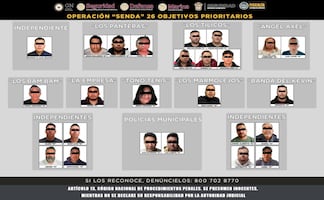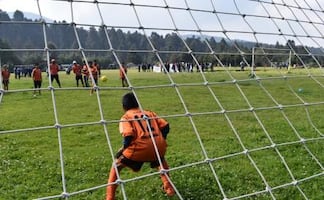Óscar “N”
, alias El Parra , who has been identified as a member of the Sinaloa cartel and the totoaba trafficking leader, an endangered species , was arrested these weekend in San Felipe by local police.
The local Public Security Ministry informed that it was a special operation led by intelligence forces, on the San Felipe-Mexicali highway, because El Parra is one of the most wanted criminals, as he is related to organized crime.
According to the investigations, El Parra was issued an arrest warrant for the murder of a soldier , and even the Sedena was offering a reward, and he's allegedly part of a criminal group that is dedicated to trafficking totoaba and drugs , and it's related to the Sinaloa Cartel , who transports the totoaba to the US , and Asia .
Endangered Species
The totoaba , totoaba macdonaldi , is a fish endemic to the California Gulf , classified as “in danger of extinction ”. According to the Profepa , the totoaba is highly appreciated in the Asian market because of its bladder , as aphrodisiac and healing properties have been attributed to it, which has driven an increase in its illegal trafficking.
The US' CBP reports that the totoaba's bladder is sold in the US and Asia between USD $7,000 and USD $14,000 . A soup made from this fish can be sold for up to USD $25,000 in China .
San Felipe
turned into the trafficking center of totoaba , as the species only lives in this region.
Confiscation on the rise
During an investigation carried out by EL UNIVERSAL , the PGR said that the totoaba trafficking and seize has increased in the last 10 years, it has even tripled its numbers, while the number of investigations is still the same.
For example, from 2013 to April 2018 , 1,287 totoaba pieces were sized in Baja California , and during the same period, only 43 investigations were opened. In the same report it's detailed how in 2013 there were only 3 seizes; in 2014 the number escalated to 103; 383 in 2015 ; 231 in 2016 ; and in 2017 they broke the record with 488 confiscations, and during the 2018 's first four months, 79 were seized.
gm
Noticias según tus intereses
[Publicidad]
[Publicidad]















